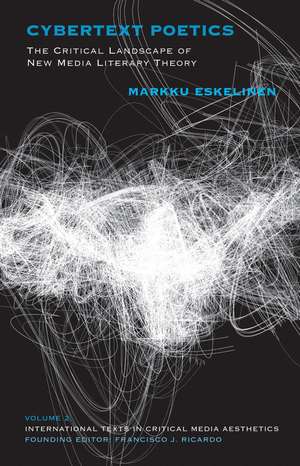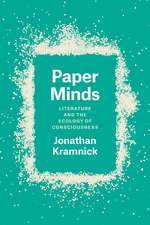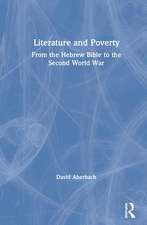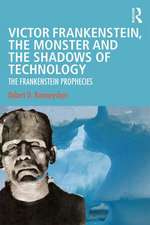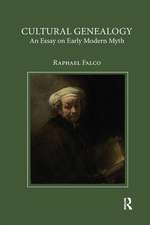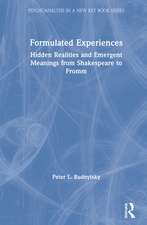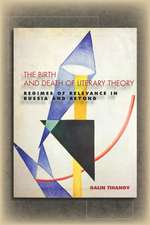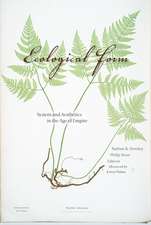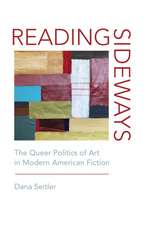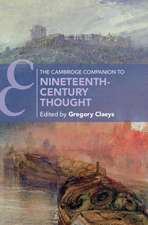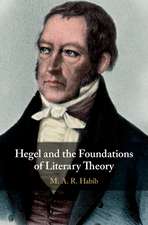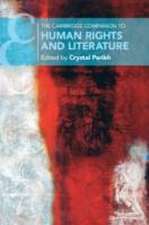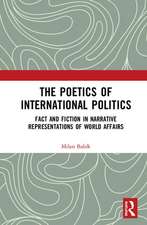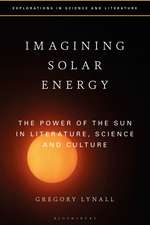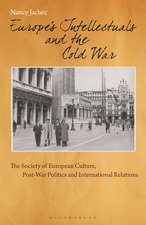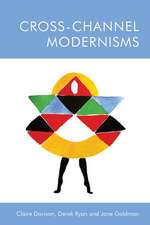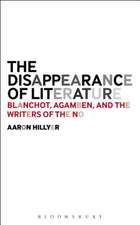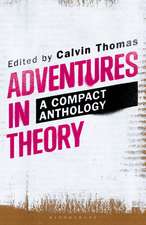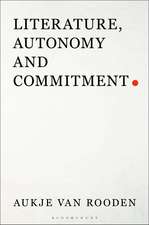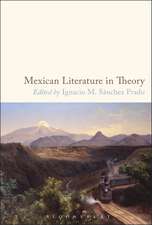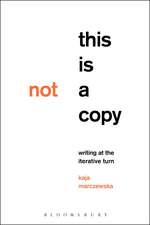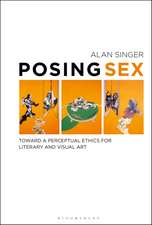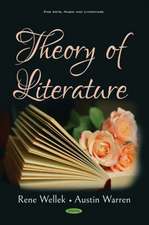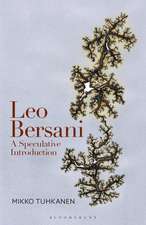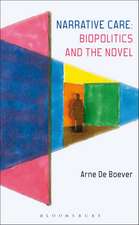Cybertext Poetics: The Critical Landscape of New Media Literary Theory: International Texts in Critical Media Aesthetics
Autor PhD Markku Eskelinenen Limba Engleză Paperback – 9 mai 2012
| Toate formatele și edițiile | Preț | Express |
|---|---|---|
| Paperback (1) | 269.60 lei 6-8 săpt. | |
| Bloomsbury Publishing – 9 mai 2012 | 269.60 lei 6-8 săpt. | |
| Hardback (1) | 953.65 lei 6-8 săpt. | |
| Bloomsbury Publishing – 9 mai 2012 | 953.65 lei 6-8 săpt. |
Preț: 269.60 lei
Preț vechi: 305.81 lei
-12% Nou
Puncte Express: 404
Preț estimativ în valută:
51.59€ • 54.25$ • 42.63£
51.59€ • 54.25$ • 42.63£
Carte tipărită la comandă
Livrare economică 16-30 aprilie
Preluare comenzi: 021 569.72.76
Specificații
ISBN-13: 9781441107459
ISBN-10: 1441107452
Pagini: 472
Ilustrații: 25
Dimensiuni: 138 x 216 x 28 mm
Greutate: 0.64 kg
Ediția:New.
Editura: Bloomsbury Publishing
Colecția Continuum
Seria International Texts in Critical Media Aesthetics
Locul publicării:New York, United States
ISBN-10: 1441107452
Pagini: 472
Ilustrații: 25
Dimensiuni: 138 x 216 x 28 mm
Greutate: 0.64 kg
Ediția:New.
Editura: Bloomsbury Publishing
Colecția Continuum
Seria International Texts in Critical Media Aesthetics
Locul publicării:New York, United States
Caracteristici
The theories and models constitute a ready-made toolbox for anyone interested in the topic.
Notă biografică
Markku Eskelinen is an independent scholar, experimental author, and according to The Review of Contemporary Fiction "easily the most iconoclastic figure on the Finnish literary scene." He is also one of the founding editors of Game Studies, the international journal of computer game research, and the series of Cybertext Yearbooks.
Cuprins
Acknowledgements
Chapter 1: Introduction
Chapter 2: Cybertext Theory Revisited
Chapter 3: Cybertextuality and Transtextuality
Chapter 4: The Textual Whole
Chapter 5: Modes, Genres, Text Types and the Enigma of the Ergodic
Chapter 6: Towards Cybertextual Narratology: The Amalgam of Narratologies
Chapter 7: Interval 1: Towards an Expanded Narratology
Chapter 8: Tense
Chapter 9: Mood
Chapter 10: Voice
Chapter 11: Interval 2: Ergodic and Narrative Discourses
Chapter 12: Ludology and the Exhaustion of Narratology
Chapter 13: Game Ecology and the Classic Game Model
Chapter 14: Game Ontology
Chapter 15: The Gaming Situation
Chapter 16: Game Time
Chapter 17: Interval 3: Games as Configurative Practices: Models and Metaphors
Chapter 18: Transmedial Modes and Ecologies
Chapter 19: Ergodic Modes and Play
Chapter 20: Textual Instruments and Instrumental Texts
Bibliography
Index
Chapter 1: Introduction
Chapter 2: Cybertext Theory Revisited
Chapter 3: Cybertextuality and Transtextuality
Chapter 4: The Textual Whole
Chapter 5: Modes, Genres, Text Types and the Enigma of the Ergodic
Chapter 6: Towards Cybertextual Narratology: The Amalgam of Narratologies
Chapter 7: Interval 1: Towards an Expanded Narratology
Chapter 8: Tense
Chapter 9: Mood
Chapter 10: Voice
Chapter 11: Interval 2: Ergodic and Narrative Discourses
Chapter 12: Ludology and the Exhaustion of Narratology
Chapter 13: Game Ecology and the Classic Game Model
Chapter 14: Game Ontology
Chapter 15: The Gaming Situation
Chapter 16: Game Time
Chapter 17: Interval 3: Games as Configurative Practices: Models and Metaphors
Chapter 18: Transmedial Modes and Ecologies
Chapter 19: Ergodic Modes and Play
Chapter 20: Textual Instruments and Instrumental Texts
Bibliography
Index
Recenzii
Cybertext Poetics confirms Markku Eskelinen to be a meticulous scholar, sensitive to the nuances of games and literature, yet never afraid to pick any fight that needs to be fought. --Jesper Juul, New York University Game Center, author of Half-Real
Confidently, relentlessly, radically, Markku Eskelinen re-tunes the critical apparatus for this new century, when the glimmering possibilities of dynamic textuality have passed from dream-vision to everyday experience. This is a momentous study, both for its crucial extension of cybertext theory, and its deep, careful affiliation with formalist aesthetics, a project it both revives and vitally revises. Rare is the critic who will match Eskelinen's combination of erudition, honesty, and sublime perverseness, his insistence on making us see clearly the world we are after making. Though one sometimes feels this writer would never choose to be part of a canon that would have him, this book deserves a place very near the center of any serious consideration of literature, narrative, and new media. --Stuart Moulthrop, Professor of English, the University of Wisconsin-Milwaukee, USA, and founding board member of the Electronic Literature Organization
Markku Eskelinen has built a great critical monument devoted to the text as a whole and its theoretical study ranging stunningly across literary theory, ludology, ergodism, new media studies and transmediality. His deep knowledge of the subjects that are object of his sharp attention, his intelligence and intellectual brightness, his provocative style and the will to understand and explain how textuality works make Eskelinen the foremost scholar in the field. With connections to all literary media and transtextual relations between them, Cybertext Poetics is a major work of cultural criticism that reminds us of the power of literature. --Laura Borràs, Associate Professor, Comparative Literature and Literary Theory, University of Barcelona, Spain; and Director of the Hermeneia Research Group
Cybertext Poetics is an extraordinarily ambitious work whose argument successfully challenges the explanatory power of current literary theories for digital practices. The two major contributions of Cybertext Poetics are (1) its revision and expansion of narratological categories, and (2) its close examination of the configurative nature of game-like procedures in cybertexts. Narratological and ludological theories are productively combined in ways that advance our thinking about literature and about games in the new media age.
Confidently, relentlessly, radically, Markku Eskelinen re-tunes the critical apparatus for this new century, when the glimmering possibilities of dynamic textuality have passed from dream-vision to everyday experience. This is a momentous study, both for its crucial extension of cybertext theory, and its deep, careful affiliation with formalist aesthetics, a project it both revives and vitally revises. Rare is the critic who will match Eskelinen's combination of erudition, honesty, and sublime perverseness, his insistence on making us see clearly the world we are after making. Though one sometimes feels this writer would never choose to be part of a canon that would have him, this book deserves a place very near the center of any serious consideration of literature, narrative, and new media. --Stuart Moulthrop, Professor of English, the University of Wisconsin-Milwaukee, USA, and founding board member of the Electronic Literature Organization
Markku Eskelinen has built a great critical monument devoted to the text as a whole and its theoretical study ranging stunningly across literary theory, ludology, ergodism, new media studies and transmediality. His deep knowledge of the subjects that are object of his sharp attention, his intelligence and intellectual brightness, his provocative style and the will to understand and explain how textuality works make Eskelinen the foremost scholar in the field. With connections to all literary media and transtextual relations between them, Cybertext Poetics is a major work of cultural criticism that reminds us of the power of literature. --Laura Borràs, Associate Professor, Comparative Literature and Literary Theory, University of Barcelona, Spain; and Director of the Hermeneia Research Group
Cybertext Poetics is an extraordinarily ambitious work whose argument successfully challenges the explanatory power of current literary theories for digital practices. The two major contributions of Cybertext Poetics are (1) its revision and expansion of narratological categories, and (2) its close examination of the configurative nature of game-like procedures in cybertexts. Narratological and ludological theories are productively combined in ways that advance our thinking about literature and about games in the new media age.
